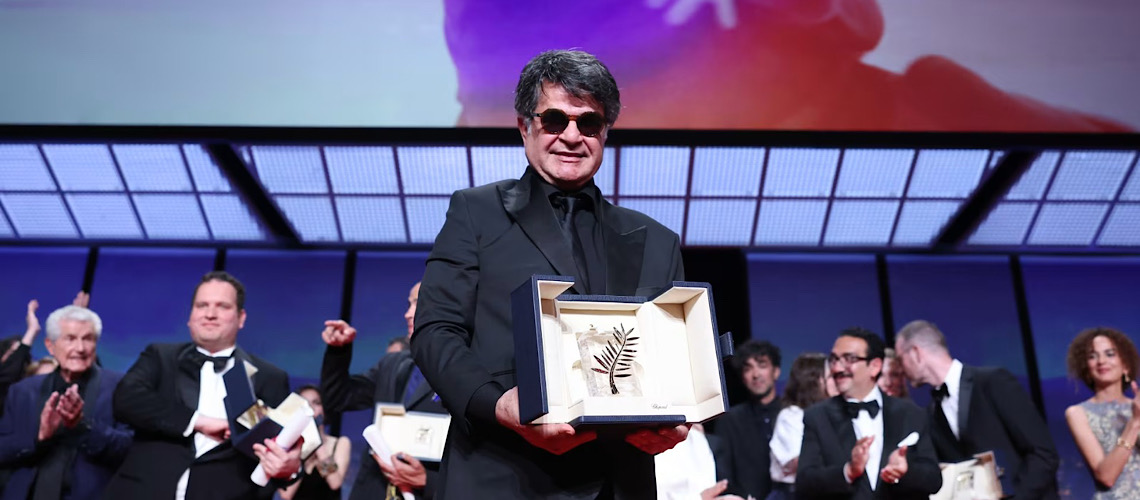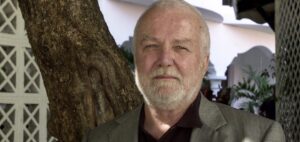Dissident Iranian filmmaker Jafar Panahi won the Palme d’Or for his film “It Was Just an Accident” at the 2025 Cannes Film Festival on Saturday, 25 May.
This marks Panahi’s first film since his release from prison. It follows a man, his heavily pregnant wife, and their young daughter, whose lives are upended after a seemingly minor car accident triggers a dark and unsettling chain of events.
The film draws inspiration from Panahi’s own experiences of imprisonment by the Iranian government. Addressing the audience, the 64-year-old director said: “The most important thing is our country and the freedom of our country. Let’s arrive at this moment, together, when no one dares to say what we should wear, what we should or shouldn’t do.”
Attending the Cannes Film Festival for the first time in 15 years, Panahi received the festival’s highest honour for his film, which centres on a plot by former prisoners to take revenge on their torturers.
Panahi explained that the film is partially inspired by his most recent incarceration. It tells the story of former political prisoners who abduct a man they believe to be their former interrogator, though they remain uncertain about his identity and conflicted over how to deal with him.
This year, the Grand Prize at the Cannes Film Festival was awarded to “Sentimental Value” by director Joachim Trier, while the Jury Prize was shared between “Sirat” by Oliver Laxe and “The Sound of Falling” by Masha Shilinski.
Wagner Moura won the Best Actor Award for his role in “The Secret Agent”, directed by Kleber Mendonça Filho, which also earned the Best Director award. Nadia Maliti received the Best Actress award for her performance in “La Petite Dernière”, directed by French-Tunisian filmmaker Hafsia Herzi.
A special prize was presented to “Resurrection”, directed by Pi Gan, while “Young Mothers” by Cannes veterans Jean-Pierre and Luc Dardenne won the Best Screenplay award.
Iranian director Jafar Panahi has been repeatedly imprisoned and banned from directing films in his home country. He has also faced multiple travel bans, preventing him from attending the Cannes Film Festival since 2003, despite his films being screened there. In 2010, he was sentenced to six years in prison and prohibited from making films or travelling abroad for 20 years, following his support for anti-government protests and accusations of spreading “anti-regime propaganda.”
Panahi was released on conditional bail after two months. Since then, Panahi has been unable to leave Iran to attend major international festivals where his work has been celebrated—including winning the Golden Bear twice at the Berlin Film Festival, three awards at Cannes, and an award at the Venice Film Festival.
During the presentation of the Palme d’Or, jury president Juliette Binoche spoke about the vital role of artists in “turning darkness into forgiveness.” The French star remarked: “Art provokes, asks questions, and changes situations, art mobilises the creative energy of the most precious and vital part of us—a force that transform darkness into forgiveness, hope, and new life.”
While recalling the prison history of the director, Binoche called the film a celebration of “art” and “human” desire to win. “It was exciting to celebrate Panahi. Art will always win. What is human will always win. As actors, directors and people who work in art, we can speak out in public on important issues and transform the world,” Binoche added.
“We are in a world ruled by revenge, violence, and this film for someone who has had this experience of violence in his life, the fact that one can talk about this change within the film, this change which is not revenge, the idea is you can listen and not necessarily want to kill someone or rough them up. The film holds out huge hope and we were fortunate to have this movie in competition. So, we can talk about these matters. You have to have a paradigm shift of looking at things. We’re in the mud of violence, in the sludge of what is human…” added Binoche as quoted by Deadline.




